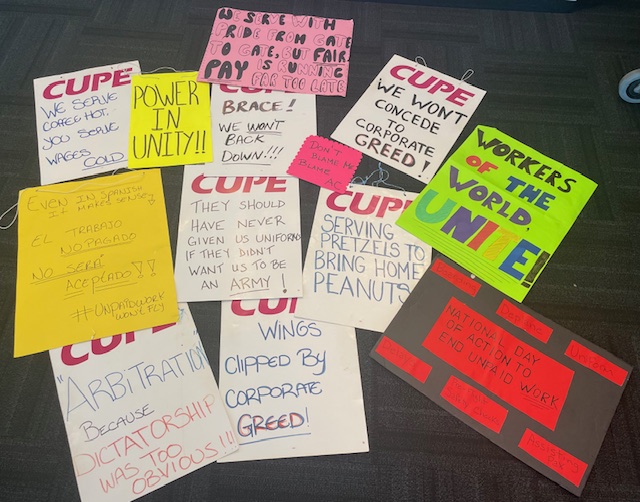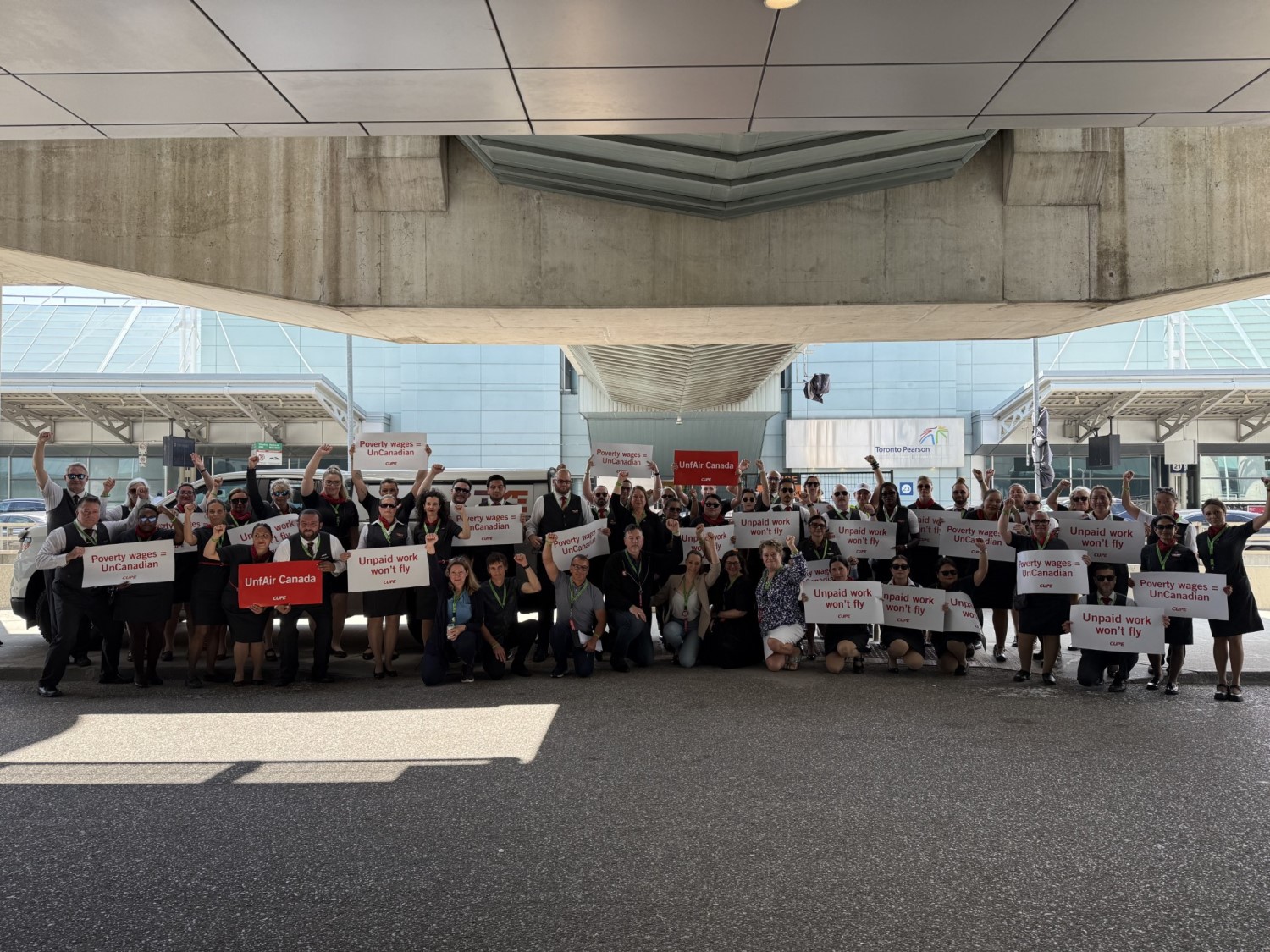Thank you
We want to take a moment to extend our deepest thanks to every single Air Canada flight attendant who has showed up to support our fight for a better contract.

Your presence on the picket lines, even in the face of uncertain consequences, was more than symbolic it was a powerful declaration that we will not be ignored, we will not be divided, and we will continue to fight for the fair wages, respect, and working conditions we deserve.
Every time we looked behind us, you were there, and it gave us the power and confidence to move forward with our protest and strike actions.
We want to extend heartfelt gratitude to the other unions who have stood with us in solidarity.
We know many of you are returning to work feeling a mix of emotions- confusion, disappointment, frustration - after the conclusion of our strike.

But let us not lose sight of what we have accomplished together. We made history, For days the eyes of Canada and indeed the world were on us. We inspired a renewal of labour militancy, our chanting voices reverberating far beyond our picket lines. That solidarity does not need to end now, no matter how you chose to vote. It belongs to you, and you can carry it into the aircraft, with your crew and your daily work.
We have experienced a profound shift in how we see ourselves as Air Canada employees and as a union.

You do not need anyone to tell you how to embody the values we lived and fought for on the line. You are the face of safety, professionalism and service at Air Canada. As you bring service and care to passengers, bring solidarity and compassion to one another. Carry the same spirit of dignity and mutual support you had on the line into the cabin with you at work. The strength we discovered together will not vanish - it will continue to shape our future.
Make no mistake: every step you took on the line, every fist you raised, every chant you voiced strengthened our collective power. This struggle was not easy and it is not over, but together we have proven that we are unshakable. No matter what the outcome of our ratification vote, our unity is our weapon, and with it, we will continue our fight in 4 years time again.
Until then, govern yourselves accordingly.
Solidarity





